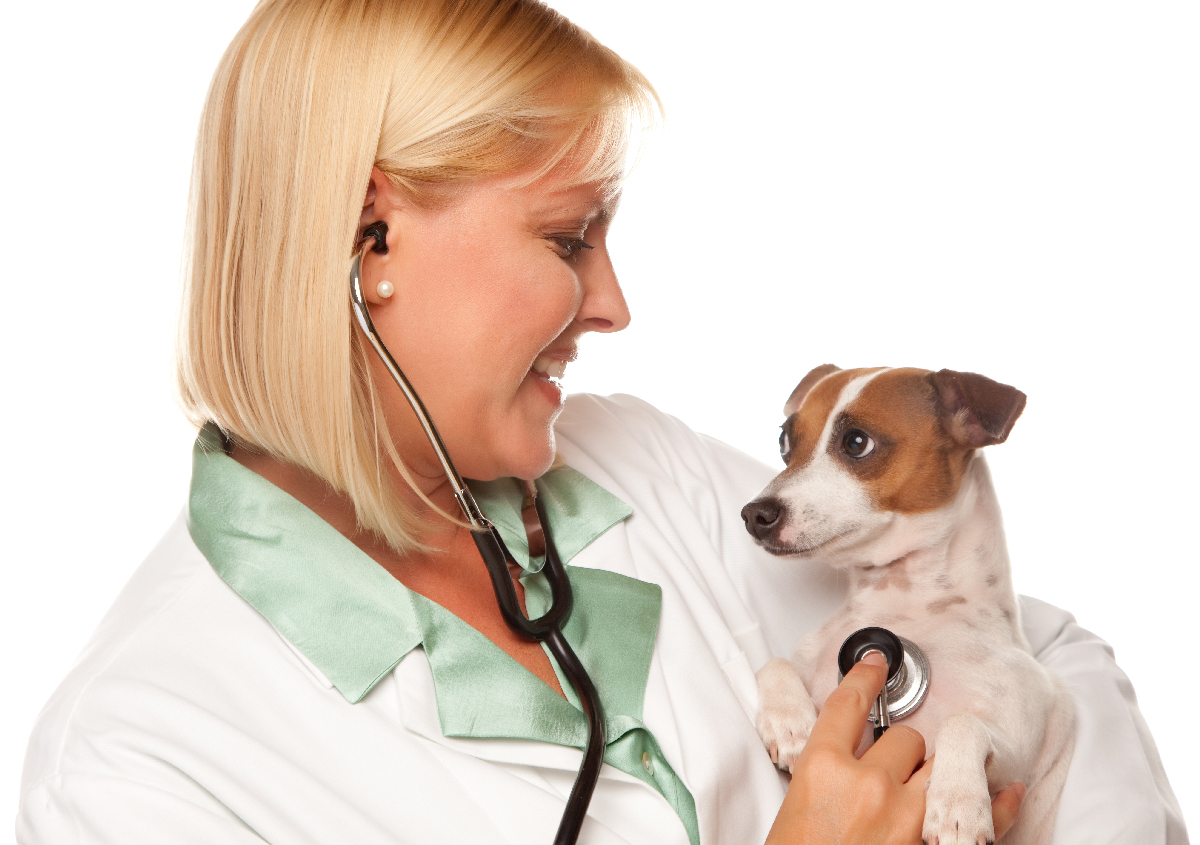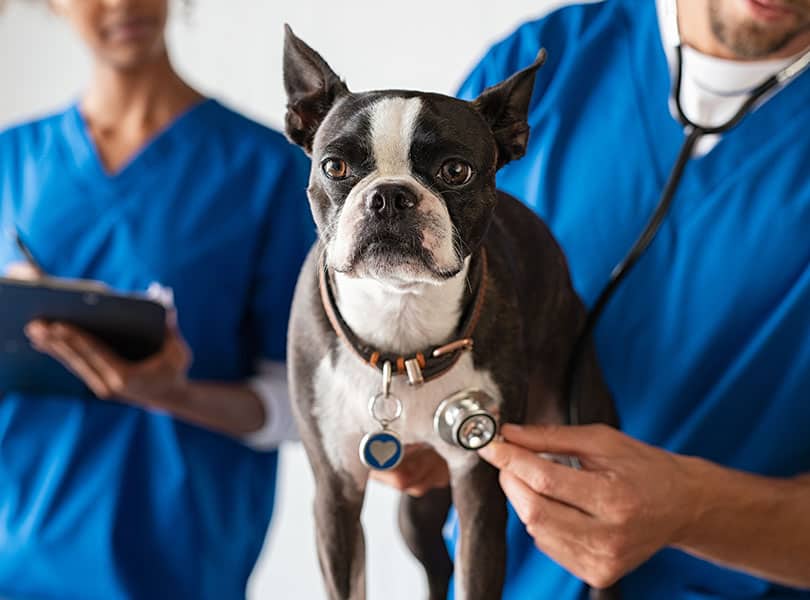How a Board Certified Veterinary Cardiologist Diagnoses Complex Heart Conditions in Pets}
Wiki Article
Discovering the Necessary Solutions Provided by a Vet Cardiologist: Comprehending Ultrasound and CT Scan Strategies
Veterinary cardiologists play a vital role in the health of animals by detecting and treating different heart problems. They utilize advanced imaging strategies, such as heart ultrasound and CT scans, to offer exact analyses. Each method has its distinctive benefits and applications. Understanding these techniques is essential for pet proprietors seeking the finest treatment for their friends. What factors should pet owners take into consideration when choosing between these analysis tools?
The Function of Vet Cardiologists in Pet Dog Health Care
Vet cardiologists play a crucial function in the medical care of pet dogs, concentrating specifically on identifying and dealing with heart-related conditions. They have specialized training that allows them to translate complex analysis tests and determine various cardio concerns. These experts use innovative strategies, such as echocardiography and electrocardiography, to evaluate heart feature and structure accurately.Veterinary cardiologists likewise develop customized therapy plans that may include medications, way of life adjustments, and, in many cases, medical interventions. Their know-how reaches educating pet dog owners concerning heart wellness, stressing the importance of routine exams and early discovery of potential problems. Cooperation with general vets is important, as it ensures detailed look after pet dogs with presumed cardiac concerns. By using specialized services, vet cardiologists significantly enhance the lifestyle for family pets and offer peace of mind for their owners, reinforcing the significance of heart health and wellness in general pet dog health.Usual Heart Problems in Pets
Typical heart concerns in family pets can substantially affect their health and wellness and high quality of life. Heart whisperings, numerous types of cardiomyopathy, and genetic heart flaws are among the most common conditions that vets run into. Cancer Veterinary Near Me. Comprehending these issues is essential for animal proprietors to ensure timely diagnosis and appropriate therapyHeart Murmurs in Pets
Heart whisperings can be a resource of problem for pet dog proprietors, they are not constantly a sign of major health problems. A heart whispering is an unusual sound created by rough blood flow within the heart. In animals, these whisperings can be brought on by different factors, consisting of congenital heart issues, shutoff concerns, or also stress during exams. Lots of pets with heart murmurs lead normal lives without significant health and wellness impacts. To figure out the underlying reason, veterinary cardiologists usually employ diagnostic strategies such as echocardiograms and Doppler ultrasounds. Early discovery and analysis are important, as they might assist handle any possible heart problems efficiently. Animal proprietors are encouraged to consult their vet for a detailed analysis if a heart murmur is identified.Cardiomyopathy Kind Explained
Cardiomyopathy incorporates a group of illness influencing the heart muscle, bring about compromised cardiac function in animals. The most usual types include dilated cardiomyopathy (DCM), hypertrophic cardiomyopathy (HCM), and restrictive cardiomyopathy (RCM) DCM largely impacts pet dogs, causing the heart to damage and expand, which lessens its capacity to pump blood effectively. On the other hand, HCM is extra common in pet cats, defined by the enlarging of the heart walls, often resulting in obstructed blood flow. RCM, though much less typical, takes place when the heart muscle ends up being stiff, limiting its capacity to load with blood. Each kind provides one-of-a-kind difficulties in medical diagnosis and therapy, necessitating specialized veterinary cardiological evaluation to assure peak management and care for affected pets.Congenital Heart Problems
Hereditary heart flaws stand for a significant classification of cardiac concerns in pets, unique from obtained problems such as cardiomyopathy - Ultrasound For Dogs. These defects are structural abnormalities existing at birth, influencing the heart's normal function. Common types consist of patent ductus arteriosus, ventricular septal problems, and pulmonic constriction. Signs might differ commonly, varying from mild to serious, and can include workout intolerance, coughing, and trouble breathing. Early medical diagnosis through innovative imaging methods like ultrasound is vital for reliable monitoring. Veterinary cardiologists play an important role in recognizing these conditions and advising appropriate therapy alternatives, which may include clinical monitoring or surgical treatment. Recognizing genetic heart issues permits much better end results and boosted top quality of life for impacted animalsComprehending Heart Ultrasound: How It Works
A considerable variety of veterinary methods currently make use of cardiac ultrasound as an important analysis tool for assessing heart health and wellness in pets. This non-invasive technique utilizes high-frequency acoustic waves to create photos of the heart's framework and function. During the treatment, a veterinary technician applies a gel to the pet's chest and uses a transducer to send out ultrasound waves. These waves bounce off the heart and surrounding frameworks, creating real-time pictures on a monitor.Veterinarians can assess various facets of heart wellness, including chamber size, wall surface movement, and shutoff function. Additionally, cardiac ultrasound permits the detection of problems such as fluid buildup and congenital heart problems. This method is important for identifying problems that might not be noticeable via conventional radiographs. By providing thorough details regarding the heart's composition and performance, cardiac ultrasound help in developing effective therapy plans for pets dealing with heart disease.The Significance of CT Scans in Detecting Heart Conditions
Exactly how do CT scans boost the diagnosis of heart conditions in vet medicine? CT scans give thorough cross-sectional photos of the heart and bordering frameworks, permitting veterinarians to envision complex physiological partnerships. This imaging technique is especially beneficial in determining congenital heart flaws, cardiac lumps, and irregularities in blood vessels. By using advanced imaging formulas, CT scans can assess heart chamber sizes and function, supplying a complete sight that might be difficult to attain with typical methods.Additionally, CT angiography can envision blood flow and recognize areas of stenosis or blockage, which is vital for intending potential interventions. The rate and precision of CT scans also help with fast diagnoses, essential in emergency situation circumstances. Eventually, the unification of CT scans right into vet cardiology substantially improves the precision of diagnoses, making it possible for targeted treatment plans and boosting individual end results for animals experiencing heart disease.Contrasting Ultrasound and CT Scan Techniques
While both ultrasound and CT scans are important tools in veterinary cardiology, they use distinct advantages and limitations that influence their usage in identifying heart disease. Ultrasound, or echocardiography, gives real-time imaging of the heart's framework and function, permitting vets to assess heart chambers, shutoffs, and blood flow. It is particularly effective for assessing conditions like heart disease and cardiomyopathy. Ultrasound may be limited in visualizing specific physiological frameworks due to individual dimension or obesity.In comparison, CT scans deal thorough cross-sectional images of the heart and bordering tissues, making them excellent for determining structural abnormalities, lumps, or vascular concerns. Although CT scans offer complete insights, they require sedation and may entail radiation exposure. Eventually, the choice between ultrasound and CT scans depends upon the these details certain scientific scenario, the look at these guys individual's problem, and the details needed for a precise medical diagnosis.Treatment Choices Available Via Veterinary Cardiology
Veterinary cardiology provides an array of therapy choices customized to deal with different heart conditions in animals. Therapy strategies typically begin with way of life modifications, consisting of diet regimen changes and workout changes, targeted at boosting overall heart wellness. Medicines play a crucial role, with cardiologists prescribing drugs such as diuretics, beta-blockers, and ACE preventions to take care of signs and boost cardiac function.In extra severe situations, interventional procedures, such as balloon valvuloplasty or stent placement, may be needed to ease clogs or improve blood flow. For specific hereditary heart defects, surgical alternatives might be discovered to fix architectural concerns. In addition, ongoing surveillance and follow-up care are necessary elements of a comprehensive treatment plan, enabling for prompt changes based on the pet's reaction to treatment. Generally, veterinary cardiology concentrates on providing efficient, individualized treatment to optimize the wellness and well-being of animal people with heart problems.Just how to Prepare Your Animal for a Heart Assessment
Preparing a pet for a heart analysis is vital to ensure exact results and a smooth process. Proprietors need to first arrange the consultation with the vet cardiologist and discuss any specific requirements or issues. It is recommended to keep food for a minimum of 12 hours before the assessment, as this assists boost imaging quality throughout treatments like ultrasound or CT scans.Additionally, keeping a tranquil atmosphere on the day of the appointment can help in reducing the pet's anxiety. It is advantageous to bring along any type of relevant medical documents, consisting of previous tests and drugs (CT Scans For Animals). Proprietors ought to likewise make particular that their animal fits and leashed during transportation to the clinic. Familiarizing themselves with the assessment process can reduce fears and assist in asking educated inquiries throughout the appointment. By adhering to these actions, owners can add greatly to the efficiency of the heart analysisFrequently Asked Questions
For how long Does a Heart Ultrasound or CT Check Take?
The period of a cardiac ultrasound generally ranges from 30 to 60 minutes, while a CT check might take around 15 to half an hour. Variables such as the individual's problem can influence these time estimates.
Are There Any Threats Related To These Analysis Procedures?

Can I Remain With My Pet Throughout the Procedure?
The veterinary facility's policy usually dictates whether animal proprietors can remain during treatments. While some centers encourage owner existence for comfort, others might need splitting up to guarantee safety and security and excellent problems for analysis imaging.Just how much Do These Diagnostic Examinations Generally Expense?
The prices of analysis tests, such as ultrasound and CT scans, normally differ based upon location and center. Generally, rates vary from a few hundred to over a thousand dollars, mirroring the complexity and innovation involved.
What Is the Healing Process After a Cardiac Examination?
The recovery procedure after a heart examination entails checking the pet for any prompt responses, making certain comfort, and limiting exercise. Vets generally provide post-evaluation directions to direct family pet owners during this important healing period. Heart murmurs, various kinds of cardiomyopathy, and hereditary heart defects are among the most widespread problems that veterinarians run into. A heart murmur is an irregular sound created by turbulent blood circulation within the heart. Cardiomyopathy incorporates a team of conditions influencing the heart muscle mass, leading to jeopardized heart feature in pet dogs. Congenital heart issues represent a pop over to these guys significant category of heart concerns in animals, distinctive from gotten problems such as cardiomyopathy. Ultrasound, or echocardiography, offers real-time imaging of the heart's structure and feature, allowing vets to analyze heart chambers, valves, and blood flow.Report this wiki page